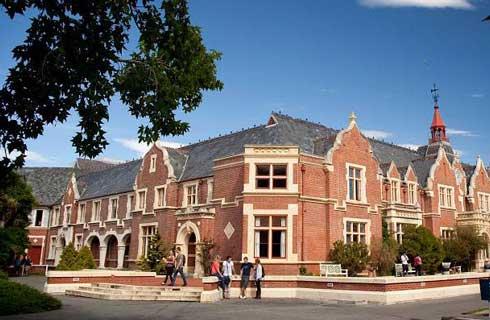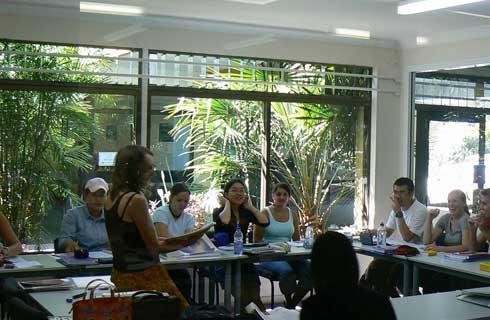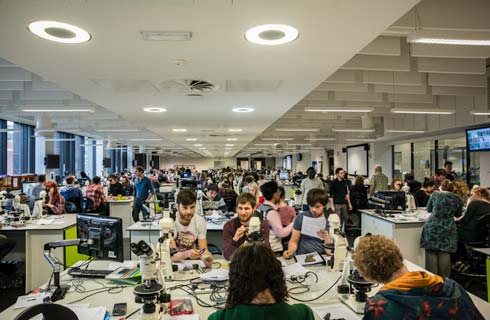- IDP China>
- 课程库>
- 社会科学>
- 社会科学>
- 社会学>
- Bachelor of Arts in Sociology - Globalization, Transnationalism, and Immigration
社会学文学士-全球化,跨国主义和移民
Bachelor of Arts in Sociology - Globalization, Transnationalism, and Immigration

学历文凭
Bachelor Degree

专业院系
Sociology

开学时间

课程时长

课程学费

国际学生入学条件
IDP—雅思考试联合主办方

雅思考试总分
7.0
- 雅思总分:7
- 托福网考总分:100
- 托福笔试总分:160
- 其他语言考试:PTE -68 Duolingo -120
CRICOS代码:
申请截止日期: 请与IDP联系 以获取详细信息。
课程简介
Early social thinkers such as Karl Marx and Emile Durkheim recognized that national societies influence one another and that global connections and processes affect social upheaval, policy outcomes, and the movement of people from one place to another. Nearly a century ago, the Chicago School of Sociology illuminated immigrants' experiences and in doing so contributed to our understanding of social cohesion and adaptation, today, this inquiry is more robust than ever.While globalization, transnationalism, and immigration have long been important phenomena for sociologists, recent changesincluding the worldwide break with Keynesian national economic management in the 1970s, the end of the Cold War in 1989, the terrorist attacks of 2001, and myriad technological advanceshave transformed the global social landscape. Using diverse theories and methods, sociologists have expanded our understanding of globalization, transnationalism, and immigration and the many ways these multifaceted phenomena continue to reshape social conditions close to home and in distant locales.The Globalization, Transnationalism, and Immigration cluster examines U.S. society in the context of its interaction with the rest of the world. Students will examine transnational connections that complement, interact with, and transform societies and the dynamics of human movement, settlement, and adaptation across and within national borders. Courses showcase factors that initiate and sustain migration flows, hybrid identities that emerge as people become transnational and locate themselves in new imagined or real communities, the internationalization of practices related to war, religion, finance, and health, and transformations of the nation-state.
相关申请
 预科
预科 奖学金
奖学金 实习机会
实习机会 在校学习
在校学习 跨境学习
跨境学习 校园授课-线上开始
校园授课-线上开始 在线/远程学习
在线/远程学习
开学时间&学费
学费信息仅供参考,请与IDP联系以获取详细信息
| 开学时间 | 时长 | 学费 | 地点 |
|---|
学校排名

世界排名152
数据源:
泰晤士高等教育世界大学排名
关于塔夫茨大学

塔夫茨大学(又名塔夫斯大学,Tufts University,Tufts)建于1852年,60多个专业可供选择,师资力量强大。几乎所有学生在校期间会参加实习或研究项目,学生毕业6个月后的就业率以及继续深造比率达到90%。塔夫茨大学(又名塔夫斯大学,Tufts University,Tufts)拥有卓越的学术水平,是一所全球范围内享有声誉的研究型大学。塔夫茨大学优秀的以及富有创造性的师生们成就了学校的独一无二。这里的一切总是让人意想不到:比如学术涉猎或技艺展现上,校队队员们也会活跃在剧场的舞台,艺术史的学生也会涉猎工程心理学,每个角落你都能发现学生们活跃的身影。作为一所大型研究型院校,塔夫茨大学Tufts提供大量机会,给师生以家的感觉,小班授课,师资水准不亚于及其注重学术的小型文理类院校。工程系学生或是文理院系学生不仅活跃在课堂之上,而且在宿舍抑或田径场上也可见他们才智的综合展现。跨学科思维是塔夫茨大学的准则,这样的思维方式另学生不必为难于是术业专攻/还是广泛涉猎的抉择当中。在塔夫茨大学(Tufts University)你将见怪不怪:游走于闲暇的周末时光,你可以会遇到化学工程的理科生指导经典喜剧的舞台表演演练;篮球队队员进行着营养学研究实验或是演绎着芭蕾舞蹈;抑或一位阿拉伯语和经济学双学位学生任职LGBT组织主席。但有一点很显然,塔夫茨大学的学生总是忙不停。塔夫茨大学就是这么一个令人不可思议的社区。
本校相关课程

Certificate of Achievement in Advanced Education in Esthetic and Operative Dentistry
学历文凭
Graduate Certificate
开学日期
课程费用总额


Doctorate in Occupational Therapy (Entry Level)
学历文凭
Ph.D.
开学日期
课程费用总额


Master of Laws in International Law
学历文凭
Masters Degree
开学日期
课程费用总额


Master of International Business
学历文凭
Masters Degree
开学日期
课程费用总额


Master of Science in Mathematics
学历文凭
Masters Degree
开学日期
课程费用总额


Master of Science in Economics (Course Based)
学历文凭
Masters Degree
开学日期
课程费用总额

其他相关课程

社会学文学硕士[仅课程]
 滑铁卢大学
滑铁卢大学学历文凭
Masters Degree
开学日期
课程费用总额


社会学文学士[一般]
 滑铁卢大学
滑铁卢大学学历文凭
Bachelor Degree
开学日期
课程费用总额


社会学文学士
 圣弗朗西斯泽维尔大学
圣弗朗西斯泽维尔大学学历文凭
Bachelor Degree
开学日期
课程费用总额


社会学文学硕士
 劳伦森大学
劳伦森大学学历文凭
Masters Degree
开学日期
课程费用总额


社会学文学士
 温尼伯大学
温尼伯大学学历文凭
Bachelor Degree
开学日期
课程费用总额


社会学文学士
 特伦特大学
特伦特大学学历文凭
Bachelor Degree
开学日期
课程费用总额










 美国
美国